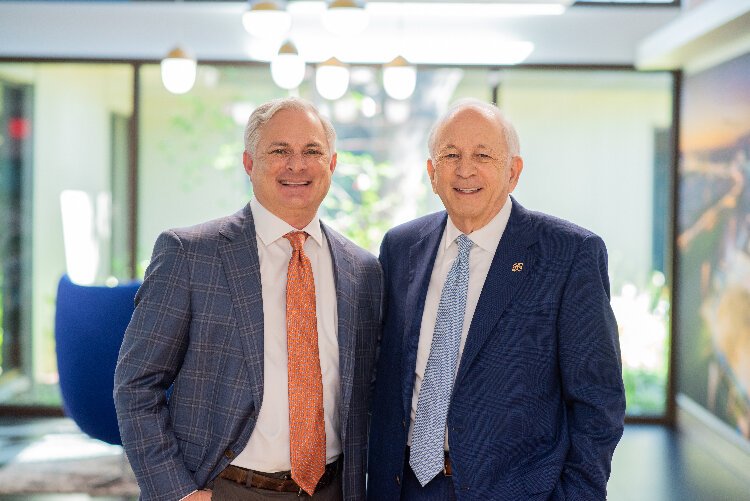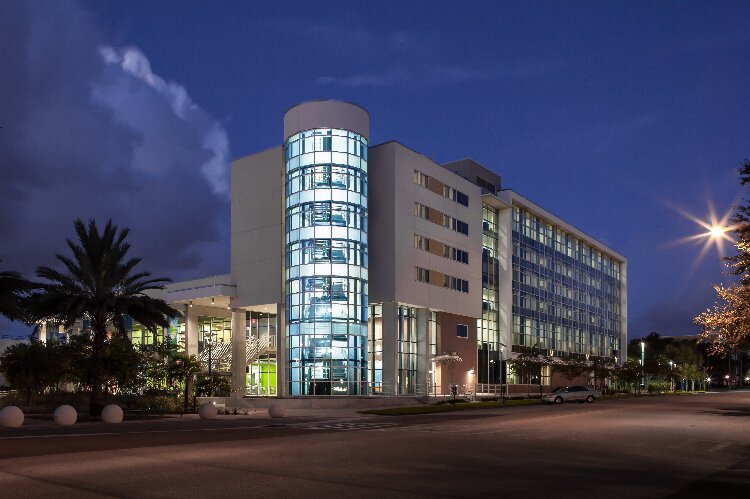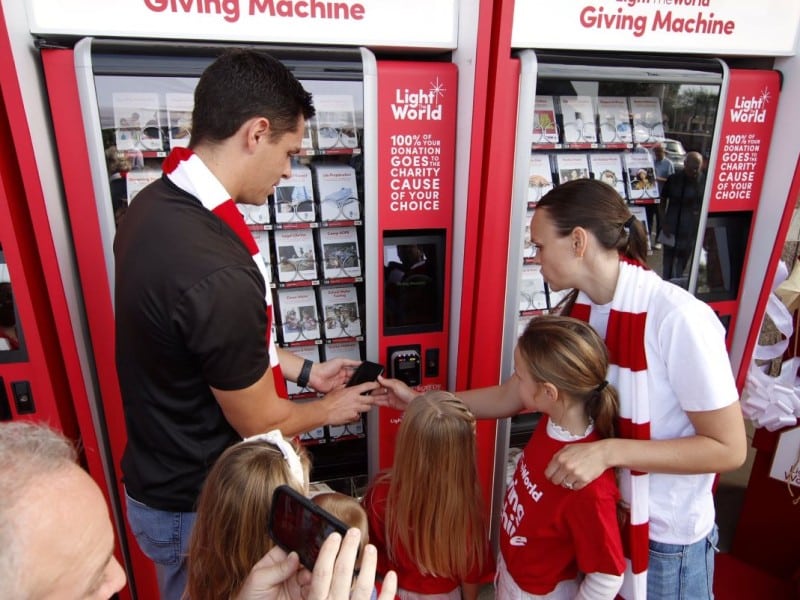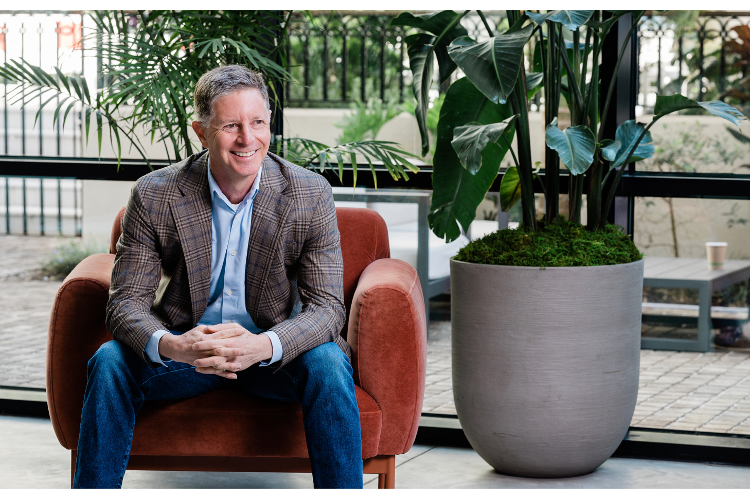Clearwater’s Creative Contractors: 50 years building projects and a business
As Clearwater's Creative Contractors marks 50 years in business, Founder and CEO Alan Bomstein and President Josh Bomstein reflect on building the father and son-run business into one of the Tampa Bay region's largest construction firms.
Crooked light fixtures, nicks in the paint job and other minor deficiencies left to fix when a building is finished are put on what’s called a “punch list.’’
Alan Bomstein hates punch lists.
“They’re inconvenient to the owner,’’ he says. “He doesn’t have a full, complete finished product that is perfect. They’re expensive to the contractor because now you have to have somebody paying attention and getting it done. They’re expensive to the sub-contractor who needs to come back out and paint what he forgot to paint the first time. There’s just nothing positive about punch lists.’’
So the company Bomstein founded, Creative Contractors, Inc., has a “zero-punch’’ policy.
“We have supervisors fix it right there,” he says. “Every week every superintendent was responsible to look for defects on the job site and never accept the answer, ‘I’ll get it on the punch list.’ ‘No, that doesn’t work with Creative Contractors, sorry.’’’
That’s likely one reason the Clearwater-based construction and contracting company is celebrating 50 years in business with a list of impressive projects on its resume: Ruth Eckerd Hall expansions, the Tampa Theatre’s new “microcinema’’ theater, Lakeland Regional Health hospital expansions, the Pinellas County Justice Center, the ice skating rink at Countryside Mall and more than a dozen schools. The company does about $175 million of business yearly, according to CEO Alan Bomstein and his son, President Joshua Bomstein, who runs the day-to-day operations.
Josh, who joined the company 20 years ago, says he gets “joy and meaning’’ from the projects the company specializes in.
“For me, we build schools, places where kids are learning,” he says. “We build hospitals, where people are being healed; rec centers, where people are contributing to their personal health and wellness; cultural facilities, where people see uplifting performances; or synagogues and churches, where people are praying. These are spaces where people are generally bettering themselves.’’
“I may be sounding a little mushy for most contractors, but for me, it matters,’’ Josh says.
The beginning
Alan’s contracting career started in the late 1960s with a call from his brother-in-law, Herman Porten, who was a contractor in Silver Spring, Maryland. Alan had graduated from the University of Maryland with an accounting degree and was thinking about becoming a stockbroker.
“He said, ‘You don’t want to do that.’ And I said, ‘Why not?’” Alan recalls. “He said, ‘You’re just going to be on the phone all day cold-calling people. You’re going to be a salesperson on the phone. That’s not a life for you. Why don’t you come to work for me? I’ll teach you the building business.’’’
He started working as a laborer on construction sites and learned a lot from watching and helping the sub-contractors, he says. After a year of doing that, Porten told him he was ready to go out on his own.
“I said, ‘What? Are you out of your mind?’ He says, ‘No, you can build a house. I’ve watched you. You’ve figured out what it takes,’’’ Alan remembers.
Alan used $9,000 he had saved to buy two lots and built two four-bedroom, two-bath homes with brick wall fireplaces. He sold one for $28,500 and the other, on a corner lot, for $29,000.
Eventually, he went to work for his brother-in-law, supervising the construction of three subdivisions in the planned community of Columbia, Md. Porten, who died in 2018, had given him three percent of the company. Around 1971, U.S. Home Corporation, whose president was Charles Rutenberg of Clearwater, bought the company. Alan put the $10,000 he made from the sale to good use.
“I bought a Corvette for myself and a mink coat for my wife,’’ he says.
He went to work for Rutenberg as national director of marketing for U.S. Home and stayed for about a year and a half before going out on his own.
Shifting gears
It was 1974, and there was a housing glut in Pinellas County, with 7,000 unsold condos, Alan says. He decided to start building out mall stores under the company name, Store Builders, Inc. When malls are complete, he explains, the store spaces are empty boxes with dirt floors. He ended up building 33 of the 100 stores in Countryside Mall.
He was asked to construct a free-standing building for Clearwater Federal. Then a doctor’s office. Then an ambulatory surgery facility.
“It’s evolutionary. One thing leads to the next,’’ Alan says.
“We wound up doing tons of strip retail centers. I regret that I contributed to the blight on U.S. 19,’’ he says, wryly. “I can’t tell you how many strip shopping centers I built on U.S. 19 in the 1980s, but it was a lot of them.’’’
Josh, laughing, says, “I feel really so much gratitude, I guess, because I came in after we built the strip centers. If we were still doing strip centers and mall stores, I don’t know if I would feel as fulfilled.’’
Big projects, unique challenges
Steadily, the company moved into another realm, completing big projects like the
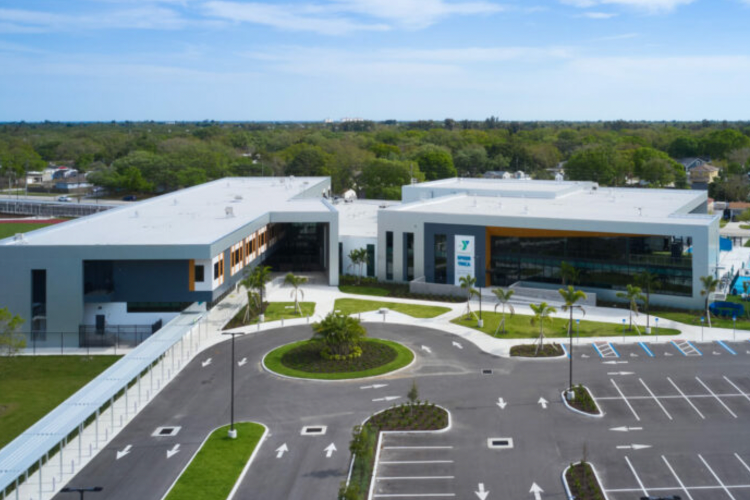
Before the 2024-25 school year, Creative Contractors completed Mangrove Bay Middle School, a magnet school in northeast St. Petersburg with an adjacent YMCA complex as a community partner.
expansion of Clearwater Marine Aquarium, the student center at USF’s St. Petersburg campus, the $40 million renovation of St. Petersburg High School and the just-completed Mangrove Bay Middle School in northeast St. Petersburg, with a YMCA complex next to it.
Going from building mall stores to multi-story office buildings, sleek performance halls and such is just a matter of following the architect’s design, Alan says.
“We just follow the recipe and bake the cake,” he says.
But there are often unique challenges along the way. Building the ice rink at Countryside Mall a few years after the mall had opened meant demolishing the center concourse of the mall, which meant bringing in diesel-powered equipment after hours.
But crews had to first seal off the metal doors of mall stores with Visqueen so that the diesel smoke couldn’t penetrate and ruin the merchandise.
“If that diesel smoke gets into your clothing, you’ll never get it out. And this is brand new clothing,’’ Alan says. They did that from about 9 p.m. to 11 p.m., the machines did their work, and they were out of there by the time the mall opened the next day.
For Ruth Eckerd Hall’s concourse, which runs underneath the seating area and connects the east and west lobbies, the company had to rip out the seating section from row “R” back.
“We tore it all out, dug out tens of thousands of yards of dirt with teaspoons – we had to use these little mini Bobcats because we couldn’t get big equipment in the hall. Then we built this concourse and poured back the seating bowl again,’’ Alan says.
“It’s a very tricky seating bowl because that room is not square. The seats are not on a straight angle; it curves up,’’ he says. “Every row, the dimensions were different, the height and width of every row.’’
Working on the renovation of the Capitol Theatre in downtown Clearwater, they found that an entire corner of the building had no foundation and was in danger of collapse. It had been built on packed sand and the sand had eroded over the years. Compression was keeping the building standing, Alan says. They had to dig down eight feet and pour concrete.
Having restored Tampa Theatre’s lobby and built the microcinema theater next door,
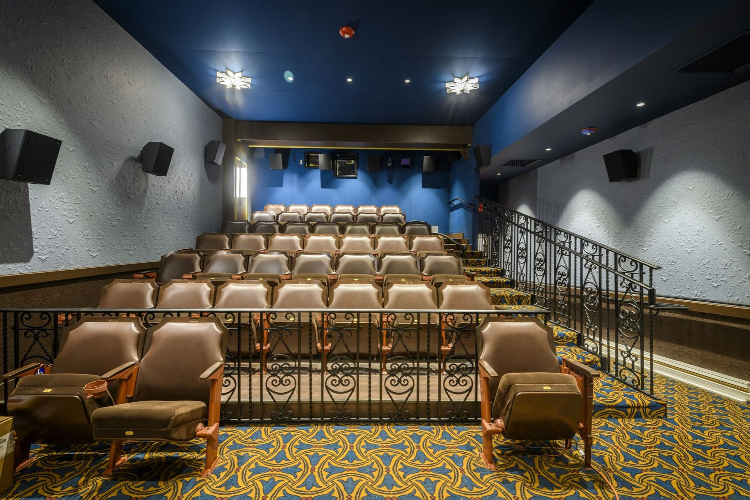
Creative Contractors built the Tampa Theatre’s microcinema and restored the theater’s lobby. Next year, the company will start major renovations on the rest of the historic building.
Creative Contractors starts work next year on the major renovation of the rest of the building, including the Mediterranean courtyard motif in the main theater. They plan to complete the ambitious project by the theater’s 100th anniversary in 2026.
“That will be completely restored by a trade contractor who solely does historic restoration work, plus we’re adding a whole bunch of common space, with a bar,’’ Josh says.
Alan says that through all the company’s projects, “We never left anybody hanging. We never left a customer feeling that he didn’t get everything paid for and more.’’
Their favorite project?
“That’s a question we get asked a lot, and it’s really hard to answer,’’ Josh says, noting that his father has the best answer:
“Our favorite job is the next job that we win and get to build,’’ Josh says. “Another thing we often joke about is we are pretty much constantly putting ourselves out of business, because every month or so we’re finishing a job, and you need the next one.’’
For more information, go to Creative Contractors.

